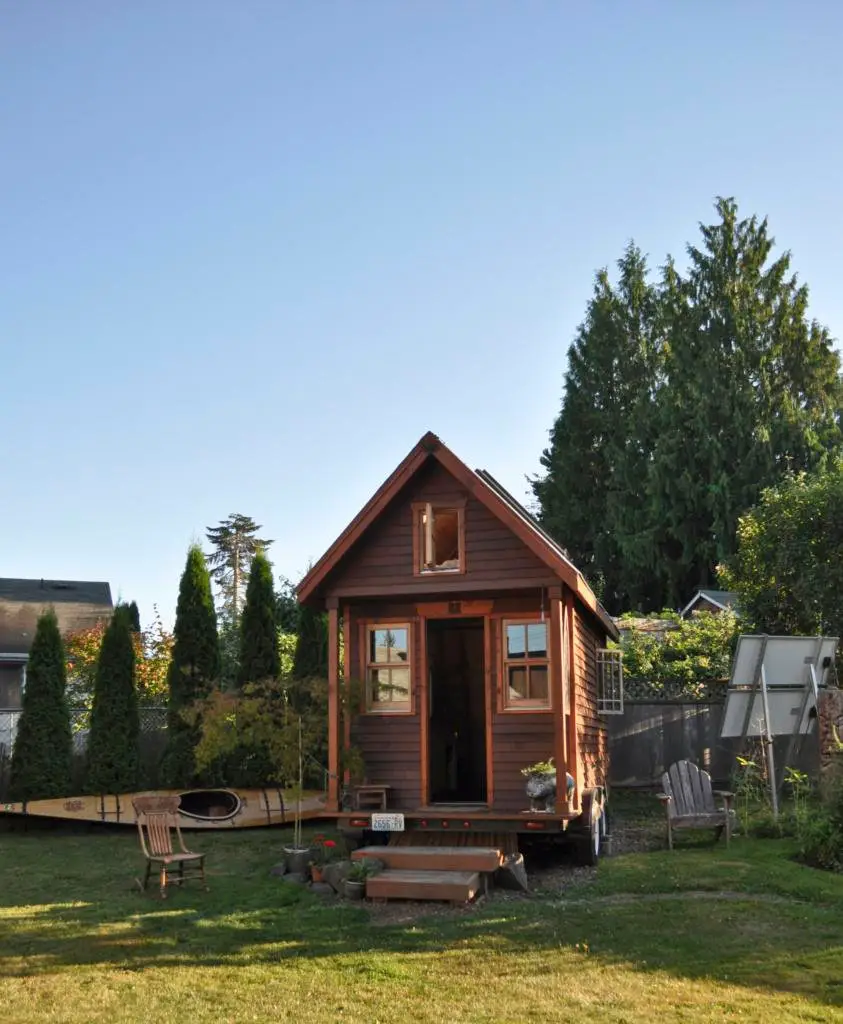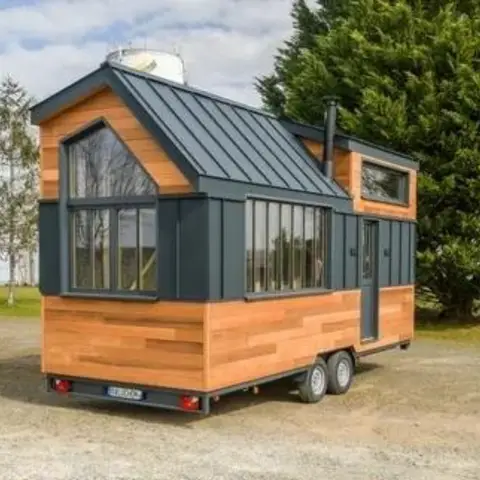Have you ever dreamt of simplifying your life and downsizing your living space? Well, if you’re located in Utah, you might be wondering whether tiny homes are legal in the state. With their increasing popularity and unique design concepts, tiny homes have captured the imagination of many individuals seeking a more minimalist lifestyle. In this article, we will explore the legalities surrounding tiny homes in Utah and provide you with all the information you need to know before embarking on your tiny home journey. So, let’s dive into the world of tiny homes and discover if they are indeed legal in Utah.
Understanding Tiny Homes
Tiny homes are gaining popularity across the United States, providing an alternative and more affordable housing option for those seeking a simpler lifestyle. But what exactly are tiny homes? These homes are typically defined as dwellings that are significantly smaller than traditional houses, usually ranging from 100 to 400 square feet in size. They often feature innovative space-saving designs and utilize efficient and eco-friendly construction methods. Despite their small size, they offer all the basic amenities needed for comfortable living, such as a bedroom, bathroom, kitchen, and living area.
Benefits of Living in a Tiny Home
Living in a tiny home has numerous advantages that attract a wide range of individuals. One of the most significant benefits is the cost-effectiveness. Tiny homes are considerably cheaper to build and maintain compared to conventional houses. The minimalistic lifestyle they promote helps reduce utility costs, as well as mortgage or rental payments. Additionally, the smaller size of these homes encourages a downsized lifestyle, allowing individuals to focus on what truly matters to them, such as experiences, relationships, and personal growth, rather than accumulating material possessions. Tiny homes also have a lower environmental impact, as they require less energy to heat, cool, and light up, reducing the carbon footprint. Lastly, many individuals find that living in a tiny home allows them to embrace a sense of freedom, mobility, and flexibility, as these homes can be easily moved or placed on wheels.
Tiny Home Regulations in Utah
When considering a tiny home as a housing option in Utah, it is crucial to understand the existing regulations and legal requirements. These regulations can vary both at the state level and within local municipalities.
State Regulations
Currently, Utah does not have specific regulations dedicated to tiny homes. Rather, tiny homes are subject to the general building codes and zoning laws applicable to traditional houses. This means that tiny homes must meet the same structural, electrical, plumbing, and safety requirements as larger homes. However, certain state laws, such as minimum size or square footage requirements, may pose challenges to those looking to build or live in a tiny home. It is essential to familiarize yourself with these regulations or consult with local authorities and professionals to ensure compliance.
Local Zoning Laws
In addition to state regulations, local zoning laws play a crucial role in determining the acceptability of tiny homes in specific areas. Zoning laws dictate the types of structures allowed in certain zones, such as residential, commercial, or mixed-use areas. It is vital to consult with local zoning officials to determine whether tiny homes are permitted in your desired location and if any additional restrictions or requirements exist. Some communities have embraced the tiny home movement and have created specific zoning ordinances to accommodate these dwellings, while others may not have clear guidelines or have outright restrictions.
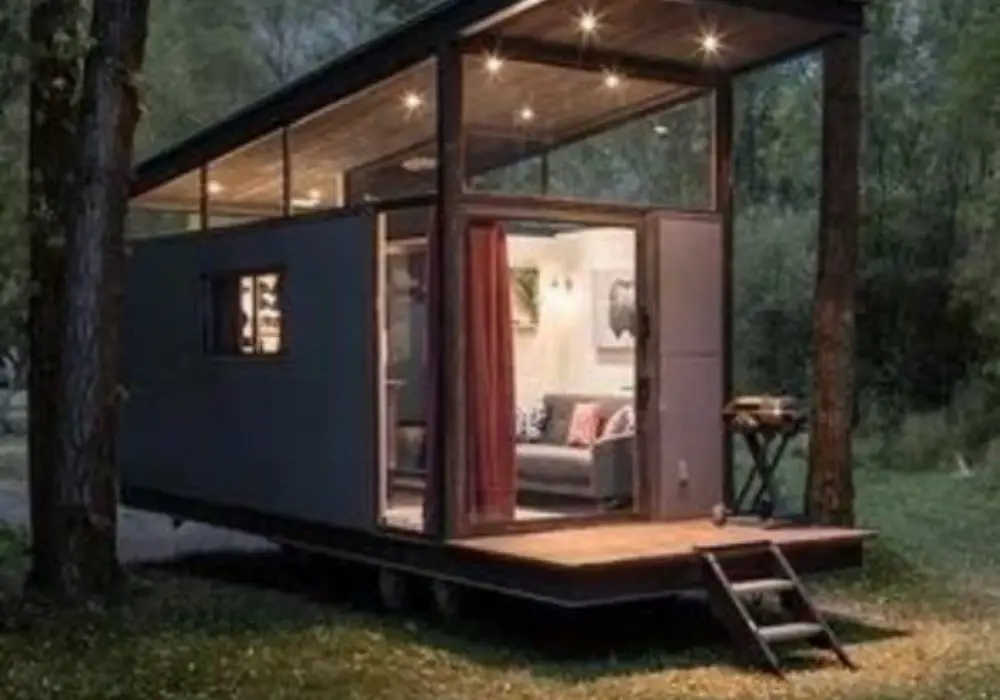
Building Codes for Tiny Homes in Utah
In Utah, tiny homes must adhere to the same building codes as traditional houses, regardless of their smaller size. These codes ensure that the home meets safety and quality standards, protecting the occupants and preserving the integrity of the structure.
Requirements for Construction
Building a tiny home in Utah requires careful attention to construction requirements, including the specific materials, techniques, and design guidelines outlined in the building codes. These codes encompass aspects such as structural integrity, fire safety, electrical systems, plumbing, and insulation. It is crucial to work closely with a qualified architect, contractor, or builder who is knowledgeable about tiny home construction to ensure compliance with these requirements.
Safety Standards
Safety is a top priority when it comes to tiny home living. As with any home, proper safety measures must be implemented in the design and construction of a tiny home in Utah. This includes adequate ventilation, fire-resistant materials, functioning smoke detectors, and secure foundations or support systems. Meeting safety standards not only ensures the wellbeing of the occupants but also contributes to the overall acceptance and legitimacy of the tiny home movement.
Permits and Licenses
Before embarking on the journey of building or living in a tiny home in Utah, it is important to understand the permit and licensing requirements that apply to tiny homes.
Obtaining Permits
To legally construct a tiny home, permits must be obtained from the local building department or planning office. These permits typically require the submission of detailed plans, including architectural drawings, electrical and plumbing plans, and other relevant documentation. It is essential to familiarize yourself with the specific permit requirements in your jurisdiction and work closely with professionals to ensure a smooth and compliant permitting process.
Special Licenses
Depending on the intended use of the tiny home, additional licenses or certifications may be required. For instance, if planning to operate the tiny home as a business or rental property, it may be necessary to obtain a business license or a specific type of rental permit. Again, consulting with local authorities is crucial to ensure compliance with the necessary licensing requirements.
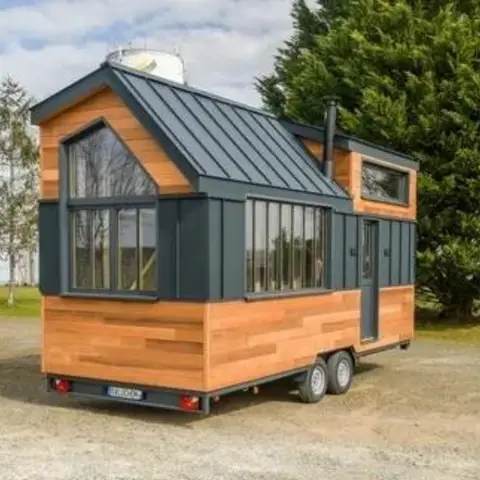
Tiny Home Communities in Utah
Utah offers various options for those interested in joining a tiny home community or living in designated tiny home neighborhoods.
Existing Tiny Home Communities
Currently, there are several existing tiny home communities in Utah that provide a supportive and like-minded environment for tiny home dwellers. These communities often offer shared amenities, such as communal spaces, gardens, and recreational areas. They provide an opportunity for individuals to connect with others who share a similar lifestyle and offer a sense of community and belonging.
Planned Developments
Recognizing the growing interest in tiny homes, some developers in Utah have planned new communities dedicated solely to tiny homes. These planned developments aim to provide individuals with the opportunity to live in a tightly-knit community while enjoying the benefits of tiny home living. These developments often incorporate sustainability initiatives and prioritize environmentally friendly practices.
Financing Options for Tiny Homes
While tiny homes are generally more affordable than traditional houses, financing options can still be a crucial consideration for aspiring tiny home owners in Utah.
Lending Options
Traditional mortgage loans may not be readily available or suitable for financing a tiny home. However, there are alternative financing options tailored to tiny homes, such as personal loans or specialized RV loans. These loans often have different terms and conditions compared to conventional mortgages, so it is essential to research and select the best option based on individual circumstances.
Government Assistance Programs
In Utah, there may also be government assistance programs available to help individuals finance or obtain affordable housing options, including tiny homes. These programs can provide financial assistance, grants, or subsidies to eligible individuals or families looking to embark on a tiny home journey. It is worth researching and reaching out to local housing agencies or programs to explore these opportunities.
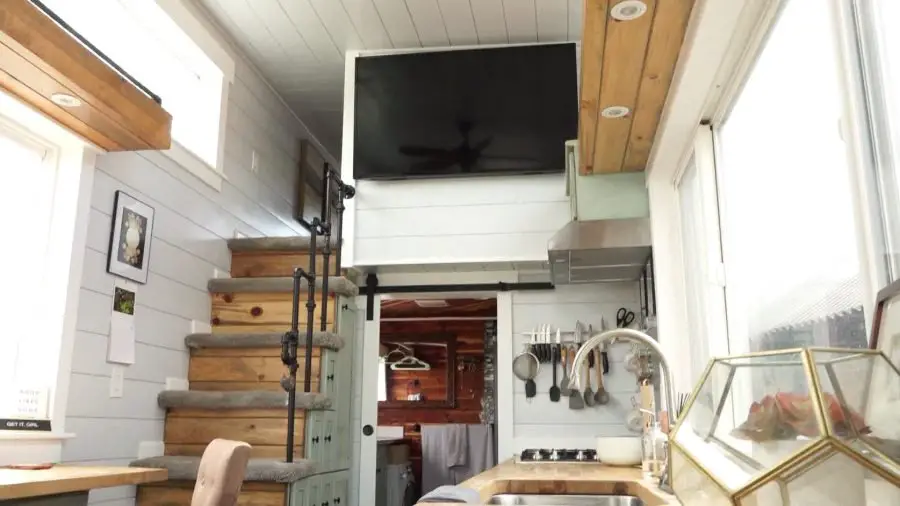
Challenges and Controversies
As with any alternative housing movement, there are differing opinions and challenges associated with tiny home living in Utah.
Opinions on Tiny Home Living
Opinions on tiny homes vary widely. Some individuals appreciate the simplicity and affordability that tiny homes offer, allowing them to focus on experiences rather than material possessions. Others, however, may view tiny homes as unconventional or impractical due to their limited space and potential difficulties with zoning regulations. It is important to understand and respect the diverse perspectives surrounding tiny home living and its impact on communities.
Neighborhood Concerns
Tiny homes can raise concerns among neighbors, particularly regarding aesthetic appeal, property values, and changes to the overall character of a neighborhood. Some individuals may worry that the presence of tiny homes could negatively impact the surrounding area or disrupt established norms. Open and respectful communication between tiny home owners and their neighbors can help address these concerns, foster understanding, and promote positive relationships within the community.
Advocacy and Support Groups
Recognizing the need for support and advocacy, several organizations in Utah actively promote and support the tiny home movement.
Organizations Supporting Tiny Home Movement in Utah
There are numerous organizations and advocacy groups in Utah dedicated to supporting and advancing the tiny home movement. These organizations provide resources, guidance, and networking opportunities for tiny home enthusiasts, as well as work towards legal and regulatory changes to facilitate more widespread acceptance of tiny homes. They can be valuable sources of information and support for those interested in exploring the tiny home lifestyle in Utah.
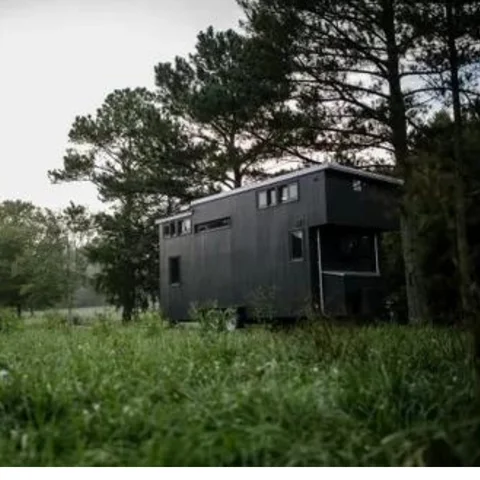
Case Studies
Through case studies, we can gain insights into the experiences and challenges faced by tiny home owners in Utah.
Success Stories of Tiny Home Owners in Utah
Many individuals in Utah have successfully embraced the tiny home lifestyle and found immense satisfaction in their decision. These success stories often highlight the financial freedom, increased flexibility, and closer connection to nature that tiny homes can provide. They serve as an inspiration for others looking to embark on a similar journey and provide valuable insights into the practical aspects of tiny home living in the unique Utah context.
Challenges Faced by Tiny Home Dwellers
While there are success stories, it is important to acknowledge that there can also be challenges associated with tiny home living in Utah. These challenges may include navigating complex regulations, finding suitable land for placement or parking, securing financing, and adjusting to a smaller living space. By understanding these challenges, individuals can make informed decisions and be better prepared for the potential obstacles that may arise.
Future Outlook
The tiny home movement is expected to continue growing in Utah, both in terms of popularity and regulatory changes.
Potential Changes in Regulations
As the demand for tiny homes increases, it is likely that regulations will evolve to better accommodate this housing option. State legislators and local authorities may revise building codes, zoning laws, and permitting processes to ensure that tiny homes can thrive within the legal framework. It is crucial for tiny home enthusiasts and advocates to actively engage with policymakers and contribute to the ongoing discussions surrounding tiny home regulations in Utah.
Growth of the Tiny Home Movement in Utah
With the numerous benefits and growing interest in tiny homes, it is expected that Utah will see a continued growth in the tiny home movement. As more communities and organizations embrace the concept of tiny living, individuals seeking a simpler lifestyle will have increasing opportunities to connect, share experiences, and find suitable housing options. The accessibility and acceptance of tiny homes in Utah are likely to improve, creating a brighter future for those interested in this unique housing concept.
In conclusion, understanding the legal and practical considerations of tiny home living is essential when considering this alternative housing option in Utah. By familiarizing yourself with state regulations, local zoning laws, building codes, permits, and financing options, you can make informed decisions and navigate the path to tiny home ownership successfully. Despite the challenges and controversies associated with tiny homes, the potential benefits, support from advocacy groups, and the growing movement in Utah paint an optimistic picture for those seeking a simplified and more environmentally conscious way of living.
